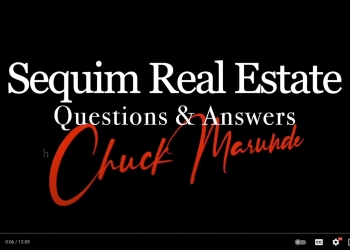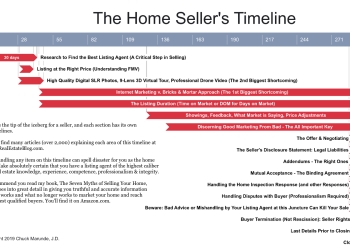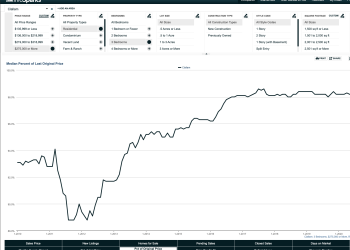 When you write an offer on a house in Sequim or Port Angeles, you’ll have to write a check for the earnest money. The earnest money is what makes the contract a legal offer that can become a binding contract. In contract law there must be consideration, and the buyer provides that consideration with earnest money. The seller’s consideration is the promise to sell you his house at the agreed price.
When you write an offer on a house in Sequim or Port Angeles, you’ll have to write a check for the earnest money. The earnest money is what makes the contract a legal offer that can become a binding contract. In contract law there must be consideration, and the buyer provides that consideration with earnest money. The seller’s consideration is the promise to sell you his house at the agreed price.
How much should earnest money be? There is no rule, just guidelines. The more expensive the home, the more the earnest money should be. I’ve seen earnest money for as little as $100 and as much as $10,000. It is common to see earnest money checks in the amount of $2,000 for a house priced at $200,000 and up, but it is also common to see earnest money of $5,000 for more expensive homes, especially in these uncertain times where financing can be questionable. If a buyer is serious and can afford to purchase a $350,000 or $750,000 home, he or she can write a check for $2,000 to $5,000.
The earnest money check is not even deposited until there is mutual acceptance on the price and all the terms. Once that happens, the final contract and the earnest money check are given to the escrow company, and they deposit the check. Most real estate brokers, including me, don’t keep a trust account for that purpose as the regulatory requirements have gotten far too cumbersome. Escrow companies have trust accounts and are set up to account for all the debits and credits on the HUD-1 settlement statement.
What happens if you reach mutual acceptance, give the escrow company the contract and they deposit the earnest money, but subsequently a contingency is not met (like you don’t qualify for your loan)? How do you get your earnest money back?
Your buyer’s agent must draft a termination of the transaction and release of the earnest money, and the seller must sign that agreement. While this is not required by law, the escrow companies all insist that they have a signed release from both buyer and seller. You can imagine that if the sellers refuse to sign the release, the escrow company will not release the funds to you. In that case, after 14 days, the escrow company must tender the money to the superior court, and you either walk away from your earnest money or you hire an attorney and sue the seller for the return of your earnest money.
The reality is that most sellers are going to sign the release. They realize that if you did not get your loan, or could not satisfy some other contingency, you are entitled to the earnest money, and the vast majority of sellers gladly cooperate and move on.
I recommend you hire an experienced Buyer’s Agent to watch your backside when it’s time to make an offer on a home. We live in challenging times, and it’s easy to get in trouble these days without even trying. May I suggest you hire me as your Buyer’s Agent? I’d love to work with you to find your perfect retirement home.
Chuck Marunde (retired real estate attorney and now Sequim buyer’s agent)
360-775-5424
Last Updated on June 23, 2009 by Chuck Marunde
































